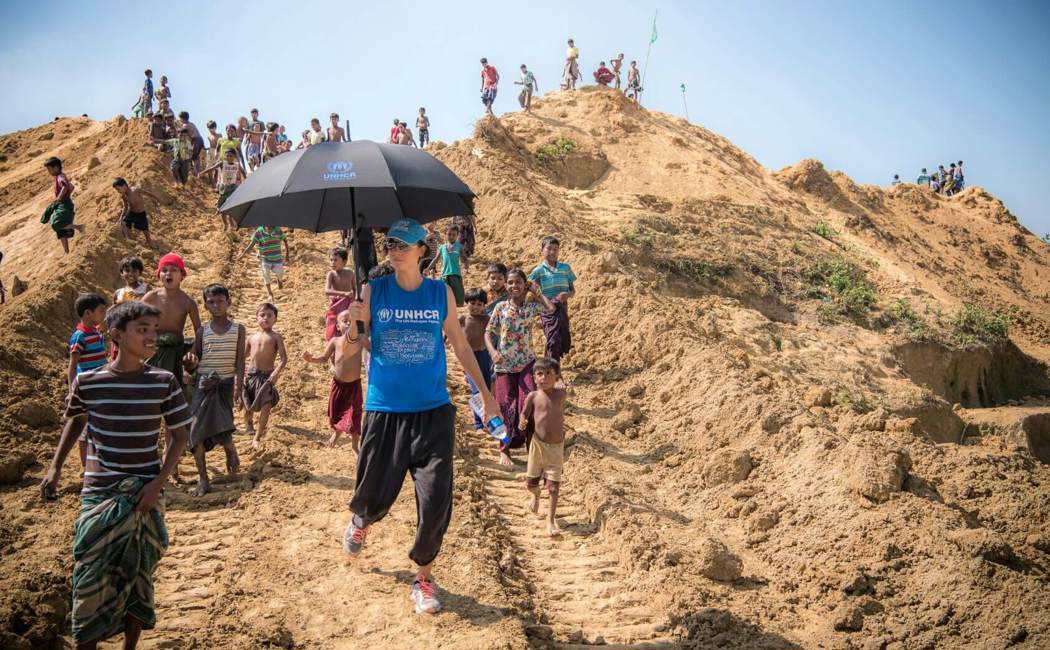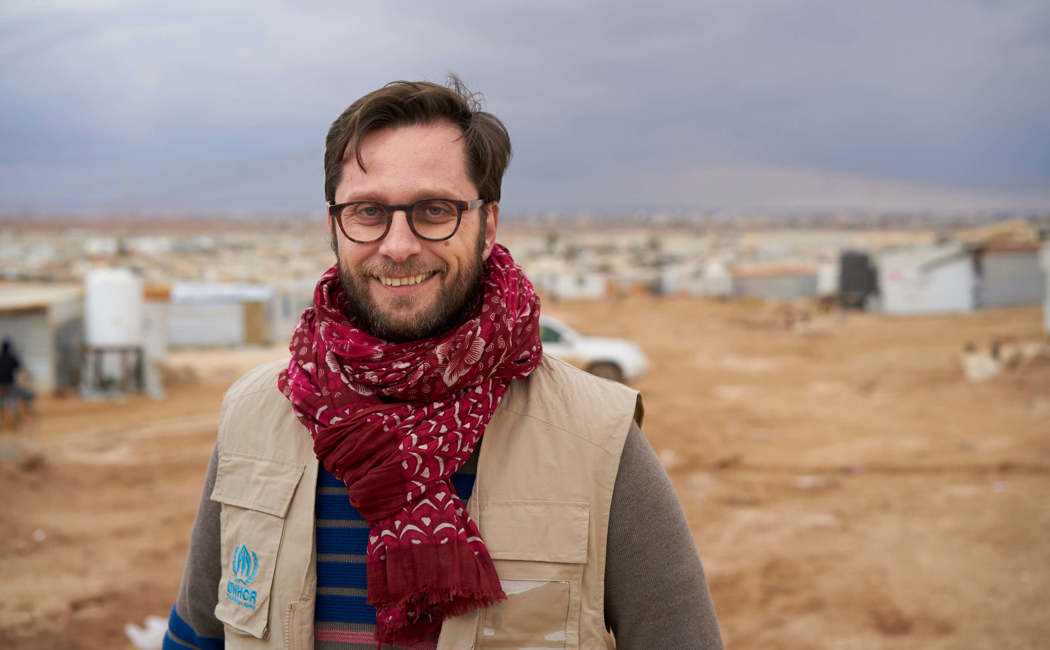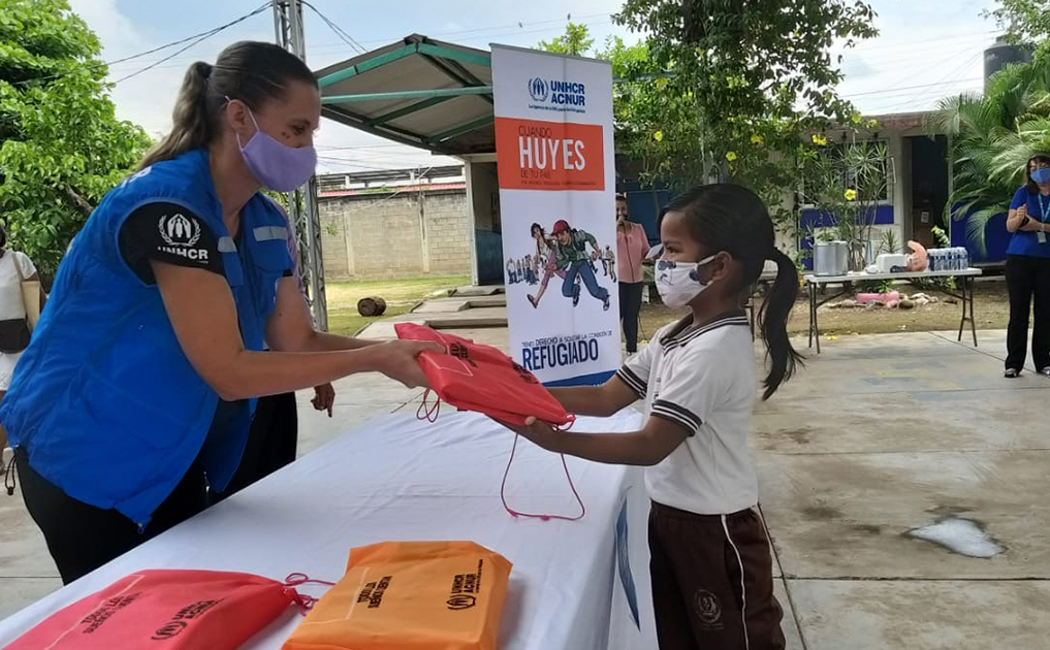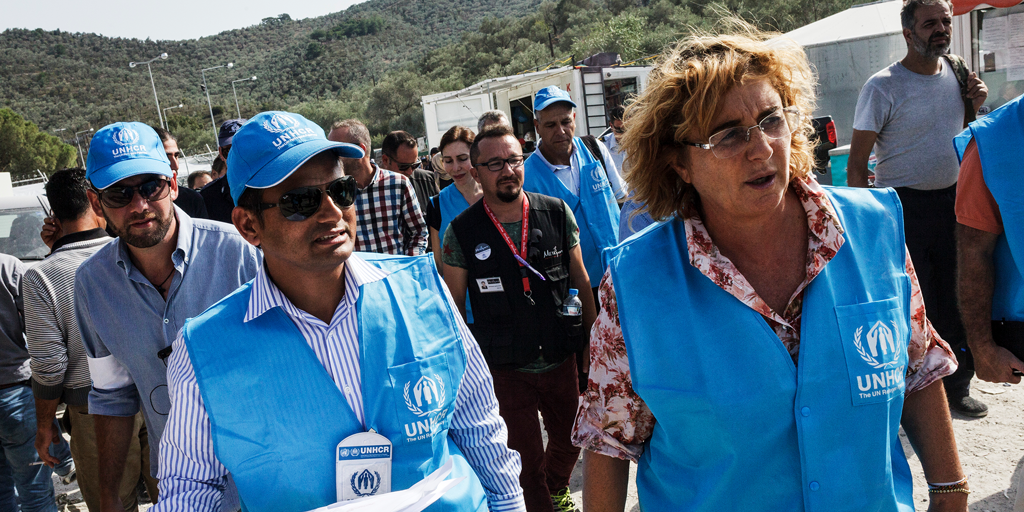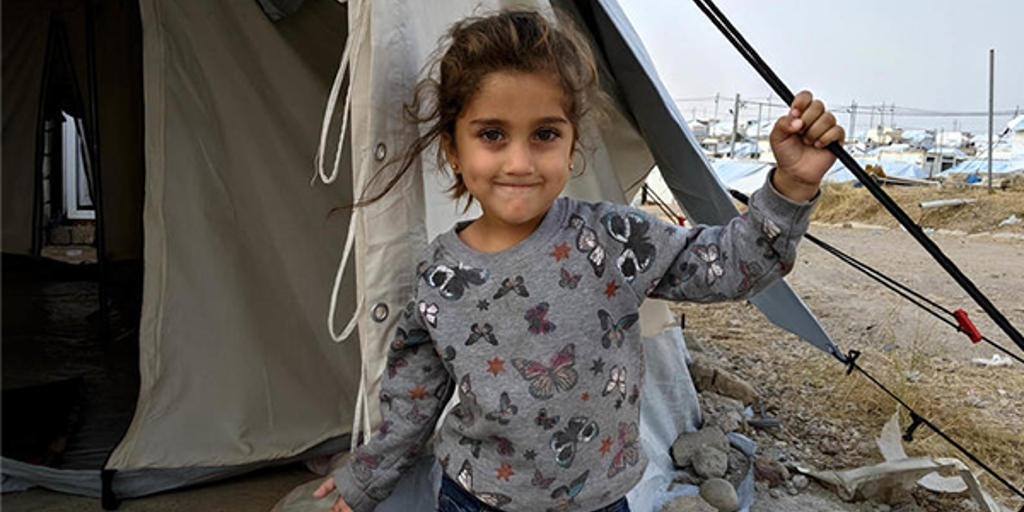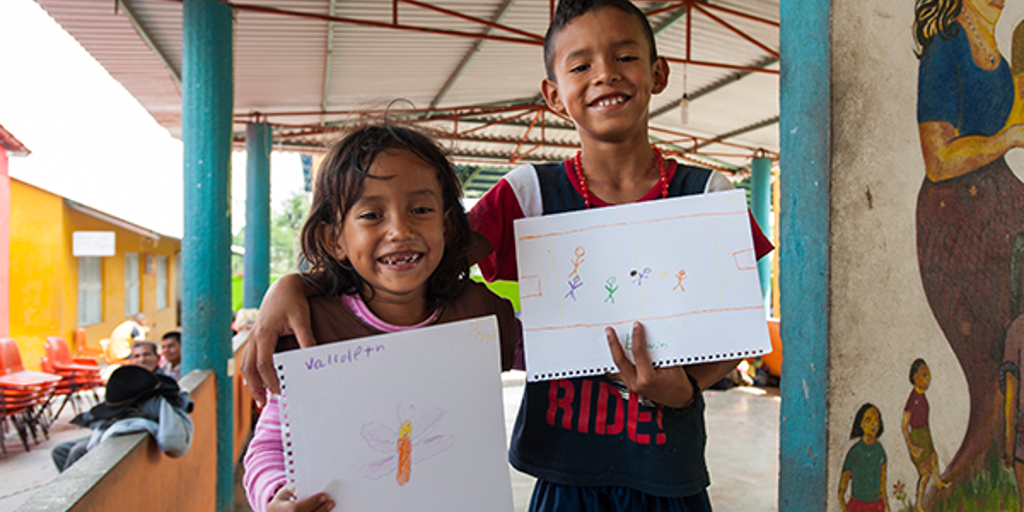You were in Bangladesh at the height of the Rohingya crisis – what was it like to be in a situation where there’s suddenly an influx of thousands of refugees?
It was fast-paced and exhausting! I was there for six months and worked every day in the refugee settlements – I didn’t have a day off until the last month. There was a lot of adrenaline but it was really rewarding as we were actively, tangibly helping people. On one particular occasion, when we had to temporarily house new arrivals in schools because the transit/reception centres were already full, we had to walk families kilometres from the overcrowded schools to the empty plots of land where they could build their shelters from the kits we provided. I was helping people carry their belongings, and their babies, along the way; you really feel you’re having an impact.
Is there a memory from one of your postings that will always stay with you?
Yes! Za’atari camp in Jordan is full of prefab containers, donated by the Gulf States, that have been transformed by refugees into the most amazing structures. I remember one old man decided to bury a prefab in his backyard, take off the roof and fill it with water, so it became a swimming pool for the kids in summer. It was this gorgeous invention, which brought so much joy. Of course, it had to be removed – water is a scarce resource there – but I still didn’t want to see it disappear.
Why did you want to work in the humanitarian sector?
When I was 10 or 11, I read this really corny romance novel set in South Africa, and it talked about apartheid. I remember investigating this strange word and being appalled by it. The more I learned about poverty and inequality, the more upset I became. Why did I get to be born into a loving family, and have a great education, without having to worry about shelter or where I’d find my next meal? I felt that if I was lucky enough to have this privileged life, I should give back. So it was all caused by that ridiculous book, I suppose.
















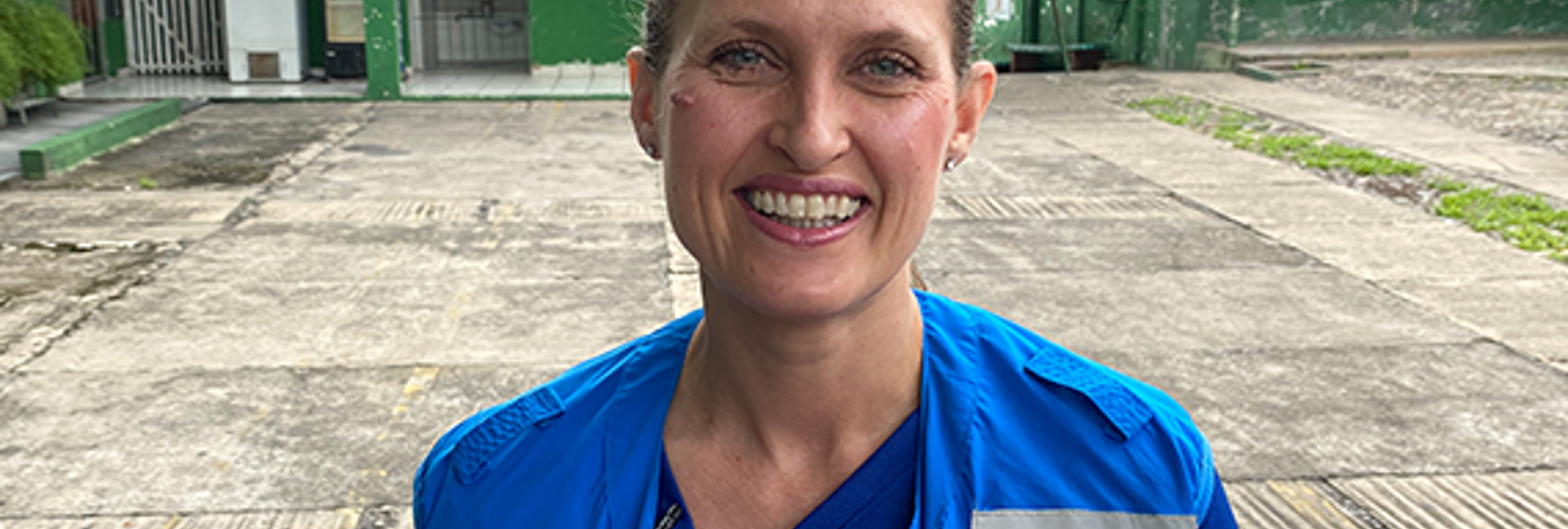
 Worldwide
Worldwide
